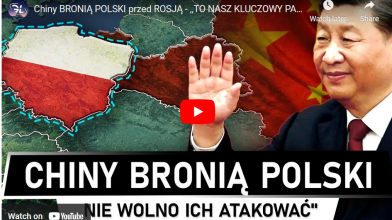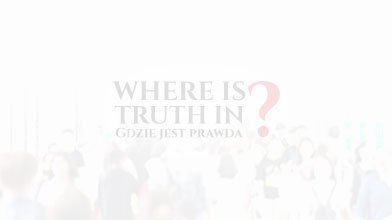Discussion with Ziemkiewicz: New, Beautiful Poland, 12/27/20
Let's start with this: There is Poland. My 50+ years in exile in New York have shown me that Poles are one of the most intelligent people in the world. Look at the Polish carpenter from Białystok, who earns the highest rates in construction in New York, is caught by many entrepreneurs because he knows what he is doing and does it well. In my college, the Polish company is renovating the entire fifth floor of the building, beautifully done, precisely, nothing to fault. Unfortunately, my fourth floor was already done by another company; a bad, indifferent job leaving many errors and ptoblems for occupants. A Polish friend, a professor of radiology, dreamed of a virtual reality lab where everything happens live and the results of training of future radiology technicians flew up like a rocket. We have a virtual reality lab. Downloaded from New Zealand. Polish students who come to our college are very good in mathematics at our multinational college. We are wonderful and our development opportunities are endless. Our ambition is a reflection of our abilities.
Unfortunately, we also have deep problems, which undercut our victories. A simple example. Apart from a few academic exceptions, we do not learn a foreign language in the country of emigration. We don't learn because we don't. Well, because you can communicate sufficiently well in sign language, or with a few words that are not well pronounced, especially if we are among fellow immigrants. And so we narrow our horizon of seeing, thinking and development and there is no ambition anymore, but only an unpleasant and guilty memory. From my personal experience, I know that bilingualism, increases our creativity, that is, the creative way of thinking, in a very dramatic way. We can then look at a given situation from two different points of view, i.e. we are developing in a fundamental way what in the Anglo-Saxon tradition is called critical thinking.
You are right, Ziemkiewicz: our geographic location is a central element of our historical and present problems. And what's more interesting, we cannot get rid of this geographical location. In such a situation it is well known what should be done: accept our situation and build our greatness on it, realizing our ambitions.
I also agree, Ziemkiewicz, that the Polish historical moment is approaching, our moment. The question is, Ziemkiewicz, what will be its shape. And here, I have the impression that we are parting our ways
We begin in a more or less common historical period with the remark that exactly when European powers were developing intensively into modern states, Poland was disappearing from the map of Europe for many years. This is a fact. As you rightly point out, this is a sad fact, and making "what if" is futile. For me, the basic question is what has been good for us in this historical process, what has been positive that we possibly don't see, and yet that would naturally allow us to soar into the sky in the near future.
My nose tells me something like that exists.
What is this? This is not being a superpower, Ziemkiewicz, these are not dreams of the former power resurrected. This will come from a new look upon reality, a new look at the deep meaning of our geographical location, which indicates a new solution: it will transform Poland from this bridge of wars between East and West, which history has provided us with so far into a bridge of peace and friendship between West and East.
How to do it?
And here we meet again. I share your admiration for Poland in the 16th and 17th century where, as you say, the Polish-Lithuanian Commonwealth was a mainstay of individual freedom in Europe. I agree with you that Poles are one of the most intelligent people in the world, that freedom was and is our desire. And here is the following idea. If Poland was as deeply permeated with freedom as you describe, then the collapse of Polish statehood as an expression of Polish society in the 17th and 18th centuries is completely natural and there is hope in this naturalness. A free man has no desire to enslave another man, a free nation has no desire to enslave other nations, the society of a free nation has not enslaved either its members or any of its subgroups. So a free nation is a nation of peace. So could it be that under that cloak of anger and mutual fight and hatred, there is something else what calls for the means of expression: the desire for peace through our freedom?


